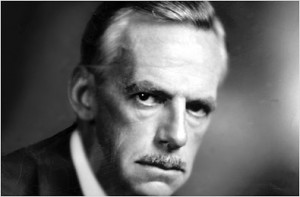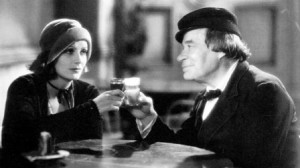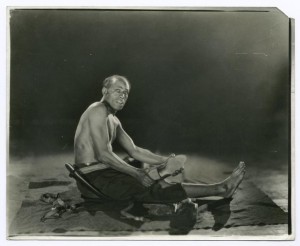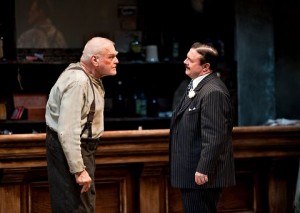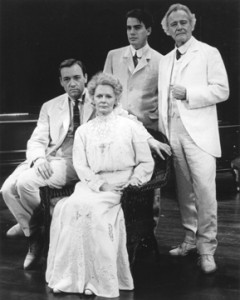Perhaps no other playwright is responsible for American drama becoming respected by the rest of the theatre world than Eugene O’Neill. O’Neill, who was the son of actor James O’Neill, is credited with having advanced dramatic literature in the U.S. to a point where our theatre and playwrights were finally seen as reaching an age of maturity. Like any artist, O’Neill was a product of his times and like any great artist, he took full advantage of the opportunity the theatre and the times afforded him.
Clumsy at First
It is no secret that young O’Neill’s plays were often clumsy contrivances that offered insights into human passions, frailties, and disappointments. Although prior to his death, the playwright destroyed most of his early work (he had intended to destroy it all), some of it survived. Published after his death under the title Ten “Lost” Plays, these short works offer insight into a developing talent. None are very good but they are all interesting as they show a young poet striving to create great drama.
In 1914, he studied dramatic technique under George Pierce Baker at Harvard University. He spent one-year studying playwriting in Baker’s class but never completed the course. In 1916, his first play, Bound East for Cardiff, was premiered by the Provincetown Players and just four years after that O’Neill would see his first successful Broadway on the boards, Beyond the Horizon (1920). Also in 1920 his first major hit, The Emperor Jones, would premiere.
The Pulitzer Prize
Beyond the Horizon won O’Neill his first of what would be four Pulitzer Prizes for Drama. He would win two more in the 1920s, one for Anna Christie (1924) and another for Strange Interlude (1928). The early 1930s saw what would be the last of his dramatic output for some time as Mourning Becomes Electra and Ah, Wilderness! both premiered in 1931.
The Nobel Prize
Although it was said that he was still writing, for more than a decade nothing new of O’Neill’s was produced on the stage. In 1936, he won the Nobel Prize for Literature. He is still the only American playwright to ever win the prestigious award. Was Eugene O’Neill’s career over at the age of 48? Many thought that it was. But they were mistaken.
O’Neill Resurfaces
In 1946, O’Neill’s masterful drama The Iceman Cometh was first produced and after that subsequent plays premiered on Broadway stages, including A Moon for the Misbegotten (1947). In it’s premiere production A Moon for the Misbegotten was a failure but in 1973 it would be remounted with Jason Robards, Colleen Dewhurst and Ed Flanders. The production, which was directed by Jose Quintero, was a major success and O’Neill’s failed drama was seen in a new light.
In his last ten years, O’Neill, who was trying to deal with Parkinson-like tremors, found it impossible to write. In 1953, he passed away at the age of 65 in Boston, MA. In 1956, his widow, Carlotta, allowed his family tragedy Long Day’s Journey into Night to be published despite the fact that he husband did not want it made public until 25 years after his death. In 1957, the tragedy received its first Broadway production and O’Neill was awarded his fourth Pulitzer Prize.
O’Neill’s Power
Eugene O’Neill created plays in which his characters were driven by deep desires and passions and extreme inner turmoil. He experimented stylistically, using realism, expressionism, symbolism, mask technique, choral speaking and other innovations in his plays. His characters often unleash a backlash of darkly defined sorrow, tortured self-hatred, and deeply embedded denial that creates an overwhelming flood of mixed emotions on stage. Audiences are transfixed by the honesty of his characters, their drive towards self-destruction, and their attempts to find redemption.
O’Neill wrote one successful comedy, Ah, Wilderness!. This is a charming play about a young Eugene O’Neill, the dreamer, romantic, and unsettled spirit. It is a touching and beautiful memory of his youth and unlike any of his other work.
Still Resonates
O’Neill’s work is still able to hold audiences transfixed. Since his death major revivals of The Iceman Cometh, Long Day’s Journey into Night, and A Moon for the Misbegotten have provided Broadway audiences with the opportunity to see masterful performances of the plays by America’s greatest dramatist.

